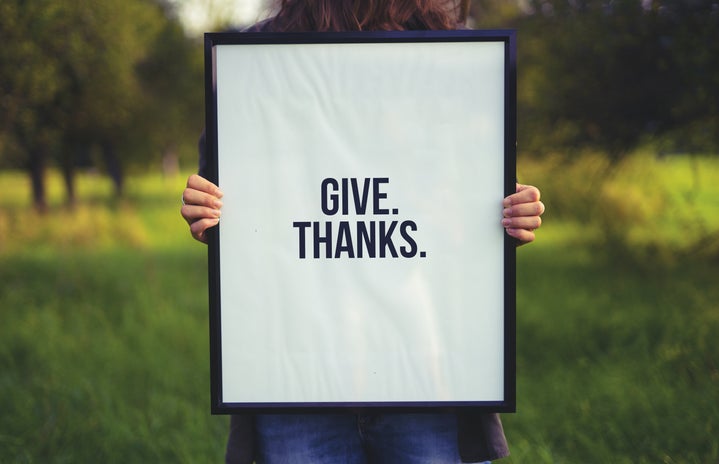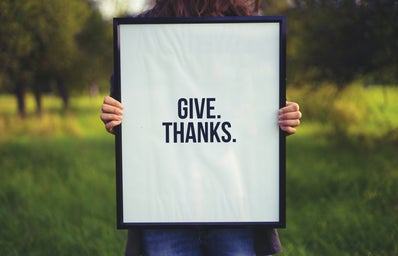Every year during the holidays, you find yourself sat around a large table full of an exorbitant amount of food prepared by the people you love. Your nosy, but hopefully well-intentioned, relatives exhibit the habit of watching you like hawks and commenting on what you eat, or don’t eat, during any given meal—as if it’s any of their business in the first place. It causes you unnecessary stress and anxiety that may ruin the holiday season for you altogether.
If you feel this way, you’re not alone. Navigating holiday traditions and family gatherings can be especially difficult for those dealing with or recovering from eating disorders. Whether you’re currently exhibiting disordered eating behaviors, you have an eating disorder, or you’re recovering from one, holidays can be tricky and pose specific, stressful challenges. However, there are some ways to hopefully mitigate the negative feelings and help you enjoy the celebrations with your loved ones as they deserve to be enjoyed:
-
Mentally prepare yourself ahead of time. Know what you’re getting yourself into and try to reckon with the fact that you’ll probably be at least a little bit uncomfortable, even if nothing actually goes wrong. Draw up a game plan for the meals you’re going to eat, but don’t obsess over it. Be mindful of eating three meals a day with sufficient snacks to stay satisfied and healthy. Thinking about everything beforehand can really be beneficial in preventing the feeling of being caught off-guard, which often causes unnecessary stress, and knowing the challenges you’ll face makes it easier to deal with them. Consider the fact that there will most likely be dessert, and lots of foods you’ve previously deemed “bad,” so make peace with that. Additionally, prepare for your family and friends commenting on what you’re eating, the amount you’re eating, and more. Rehearse what lines you might say back to them, whether they’re funny, dismissive, or even explanatory.
-
Distract yourself. Believe it or not, Thanksgiving isn’t all about turkey and mashed potatoes. At least, it’s not supposed to be… Remember the origin of Thanksgiving and encourage others to do the same. Focus on the positives and what you’re thankful for in life, even if it’s as simple as the beautiful weather outside, or the feeling of holding a warm mug of tea in your hands. Share love and kindness with those around you.
-
Distract others. When someone starts talking about how much they’ll need to go on a diet after the holidays are over, change the subject to something that isn’t a trigger. When others are discussing their plans to skip breakfast and lunch to make room for Thanksgiving dinner, distract them with a new topic that doesn’t relate to food. If the topic change doesn’t work, don’t be afraid to remove yourself to the situation.
-
Create a support system. If it’s at all possible, find a family member you can confide in. It can be really helpful to talk to someone beforehand and vent about the things that are making you dread the holidays. If they pay attention to the conversations during the meal, they’ll be able to stand up for your if someone is asking you difficult questions or making you uncomfortable, and they can help to smooth over the situation and rescue you from your discomfort. It can also be really nice to talk to them afterward and appraise the events with them. Your disordered eating doesn’t have to be a secret if you don’t want it to be. Having a family member or a friend to confide in and trust may counteract the thoughts that burden you and make your holiday experience more enjoyable overall.
-
Be gentle with yourself. You may feel like you’ve messed up, made mistakes, or even completely failed your goals and destroyed your hopes for the holiday, but don’t beat yourself up about it. Expect that you may overeat, and that’s alright; normal eating behaviors allow for fluctuations, and no real human being eats exactly the perfect amount for every meal. Desserts and other comfort foods will most likely be abundant, which means, if it’s something you want to do, it’s the perfect time to indulge yourself with a food that makes you happy!
-
Step out if you need to step out. Give yourself the time you need to unwind and regroup. Hide away in the bathroom for a moment or two, or take a breather outside. If you want a longer break from the stress of the meal, busy yourself by washing the dishes, which may be a surprisingly calming and cathartic activity, or take your mind off of everything by petting the family dog or cat. At the end of the night, write your thoughts down in a journal, or tell them to someone you trust.
-
Don’t be afraid to stand up for yourself. You deserve to be treated well, and no one should make you feel bad for what you eat or don’t eat. What you consume is no one’s business but your own, so don’t be afraid to tell people to stop being nosey. It’s easy for others to push you around and try to control what you eat, but it doesn’t have to be this way. Find the confidence within yourself to stand up for yourself, and realize that you are worthy of being treated correctly.
At the end of the day, know that you’ll get through this, one step at a time, no matter what happens. Thanksgiving is just one day of the year and soon you’ll be able to return to your significantly less stressful daily life. Experiencing the holidays when your life has been influenced by an eating disorder can be incredibly stressful, so give yourself the credit for overcoming the challenge, and be proud of yourself for all you’ve accomplished. Lastly, don’t give disordered eating behavior the power to ruin your holiday. Take charge, and create joy for yourself and for those around you.



